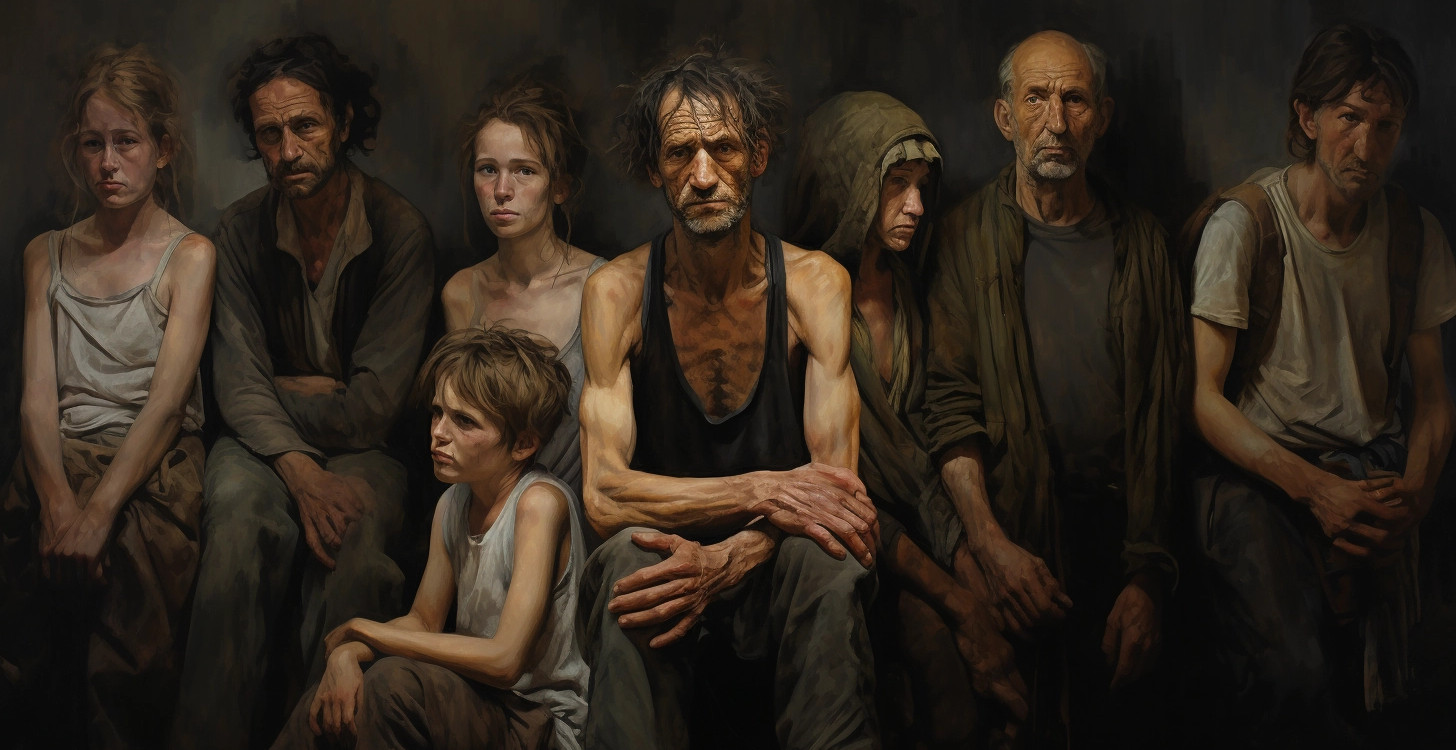In a future overshadowed by the consequences of political corruption and greed, the world finds itself in a precarious position where food has become the first and only priority for its inhabitants. This dire situation has emerged not as a result of natural calamities or environmental degradation, but purely through the manipulations and avarice of political elites who have prioritized their interests over the well-being of the global population.
The genesis of this crisis can be traced back to the deliberate hoarding and misallocation of food resources by corrupt officials and their cohorts in the private sector. Through a web of nepotism, bribery, and exploitation, these power brokers have commandeered the food supply chain, diverting essential resources away from those in need to line their pockets and strengthen their hold on power. This manipulation has led to artificial scarcities, skyrocketing food prices, and the marginalization of small-scale farmers and producers who are unable to compete in a rigged market.
As the crisis deepens, the gap between the haves and the have-nots widens dramatically. In nations most affected by corruption, millions find themselves on the brink of starvation, as access to affordable, nutritious food becomes a luxury only the wealthy can afford. The middle class, once buffered from such extremes, begins to crumble under the weight of rising food costs, pushing more individuals into poverty. Social unrest grows as communities rally against the injustices that have left them hungry and desperate.
The international community watches with alarm as attempts to intervene are stymied by corrupt governments that refuse aid or siphon off resources to further enrich the ruling elite. Humanitarian efforts are hampered by bureaucratic red tape and threats of violence, making it nearly impossible to deliver relief to those who need it most. The politicization of food aid exacerbates tensions, turning what should be acts of compassion into tools of manipulation and control.
In response to this global emergency, grassroots movements and non-governmental organizations begin to emerge, championing the cause of food sovereignty and fighting for the right to food. These movements advocate for local food systems that are resilient, sustainable, and free from the grip of corrupt officials. They call for international sanctions against those who perpetuate the crisis and demand transparency and accountability in the management of food resources.
The article ends on a note of cautious optimism, highlighting the resilience and solidarity of communities that have come together to reclaim their right to food. Urban farming initiatives, community-supported agriculture, and food-sharing programs become rays of hope in the fight against corruption-induced food scarcity. While the road to recovery is long and fraught with challenges, the collective will of the people offers a glimmer of hope for a future where food is accessible to all, free from the chains of greed and corruption.
In this imagined future, the prioritization of food reflects not only the basic need for sustenance but also the broader struggle against inequality and injustice. It serves as a stark reminder of the devastating impact political corruption can have on society, especially when it comes to something as fundamental as food. The fight for a fair and equitable food system becomes not just a matter of survival, but a rallying cry for democracy, transparency, and human dignity.
